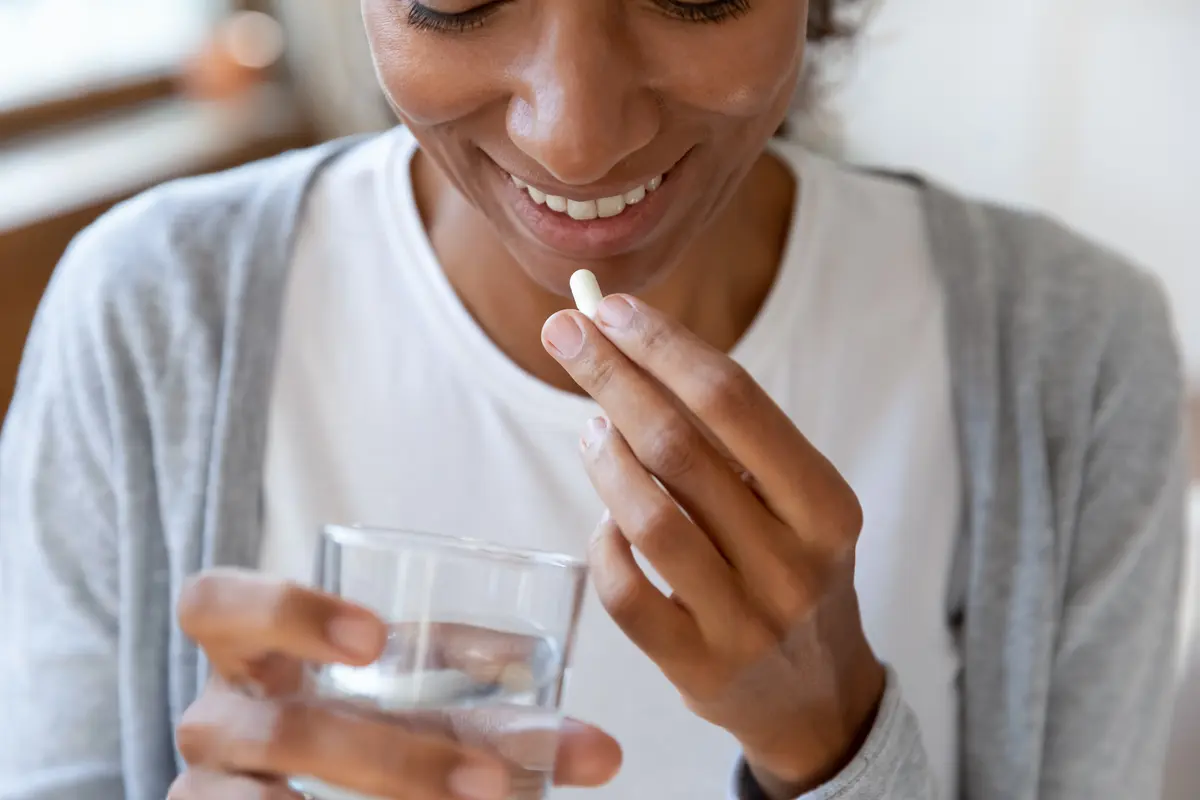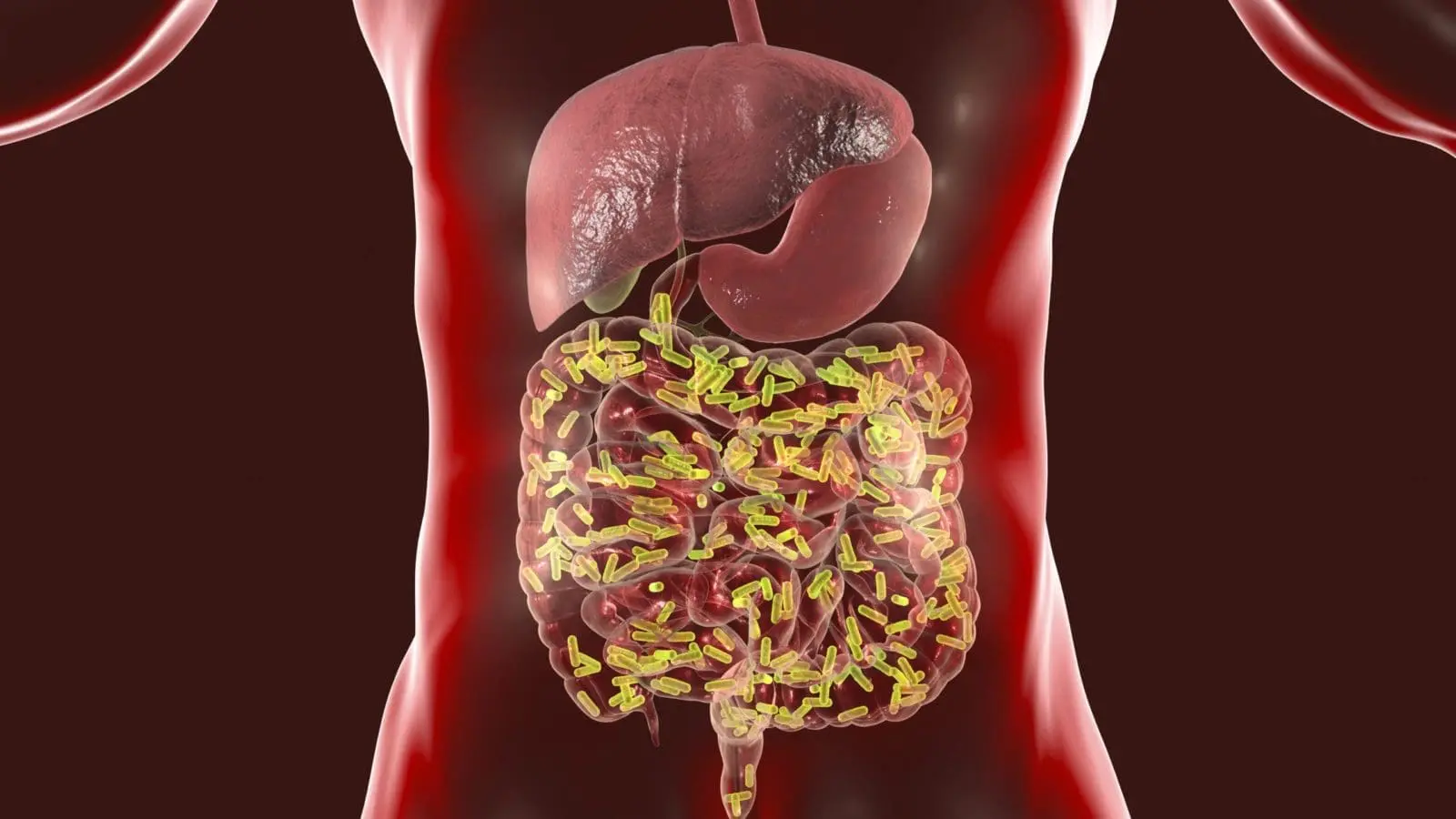If you have Small Intestine Bacterial Overgrowth (SIBO), you are familiar with the uncomfortable symptoms and perhaps have taken the typical antibiotics, feeling some relief. However, antibiotics, particularly when taken repeatedly, as often happens for SIBO sufferers, also wipe out friendly bacteria, which may cause the issues doctors prescribe those same antibiotics to relieve.
While treating bacterial overgrowth with bacteria may seem counterintuitive, another solution may exist. Practitioners and SIBO sufferers use probiotics or friendly bacteria to help reduce SIBO symptoms. A meta-analysis of 18 recent studies concluded that probiotics could reduce SIBO markers, relieve abdominal pain, lower hydrogen concentrations in the breath, and other measures.
What are SIBO Probiotics?
SIBO is an overgrowth of bacteria in the small intestine. In a healthy digestive system, it is the lower digestive system, particularly the colon, that more bacteria are present. In SIBO, the concentration of bacteria in the small intestine is greater than in the large intestine, which is opposite to a healthy gut.
SIBO sufferers may experience a variety of symptoms:
- Gas
- Diarrhea
- Abdominal pain
- Bloating
- Nausea
- Fatigue
- Constipation
One common misconception is that probiotics contribute to or worsen SIBO symptoms. Scientists are still investigating probiotics and their impact on SIBO. Still, indications are that carefully taking probiotics for SIBO can positively affect abdominal pain, reduce SIBO, and decrease hydrogen concentrations in breath tests, which are indicators of SIBO.
The Connection Between Probiotics and SIBO
How do probiotics produce the positive effects researchers have seen? Our bodies naturally contain a combination of friendly bacteria, viruses, and yeasts, collectively described as our microbiome. However, living in the modern world with refined foods, stress, and pollutants and using medications such as antibiotics or Proton Pump Inhibitors (PPIs) can reduce the number of friendly bacteria in our bodies.
For many years, medical thought assumed all bacteria in the body were harmful and had to be eradicated. In the 20th century, pharmaceutical companies produced life-saving medications like antibiotics that can kill pathogenic bacteria. However, antibiotics also kill the friendly bacteria in our bodies that are essential to health. Once these friendly bacteria are gone or weakened, unfriendly bacteria can easily thrive and grow in such an environment, causing dysbiosis and eroding health.
Probiotics consume certain types of fiber (known as prebiotics) our bodies cannot digest and, in return, produce various substances such as vitamins, fatty acids, and other compounds our bodies need. They thrive and grow when they can feed on prebiotics. As they grow, they replace the harmful bacteria, crowding them out and improving overall health.
The right probiotics can help manage the bacterial overgrowth that characterizes SIBO, reducing symptoms and hydrogen breath levels, which are two indicators of SIBO.
Do Probiotics Help SIBO?
In the meta-analysis mentioned earlier, the researchers evaluated 18 studies involving probiotics and SIBO. The analysis concluded, “The probiotics group showed a significantly higher decontamination rate than the non-probiotics group. Also, the H2 concentration was significantly reduced among probiotic users.” In addition, abdominal pain scores decreased in the probiotic group.
Strains that May Improve SIBO Symptoms
Three probiotic species have positively impacted gut issues: Lactobacillus and Bifidobacteria blends and Saccharomyces boulardii, a beneficial yeast. Combining these species seems to work best.
Broader Benefits of Probiotic Regimens
A well-made probiotic supplement may improve SIBO symptoms but also may have other benefits. Studies indicate that better gut health improves overall well-being and immune function and may improve mood, skin, allergies, urinary health, hair, and other body systems.
Can Probiotics Make SIBO Worse?
SIBO can have several causes, sometimes related to an underlying condition that makes the small intestine comfortable for bacteria that should be in the large intestine. Examples are a postoperative loop, stricture, or fistula. These conditions may require surgical or other interventions to solve the root cause.
For this reason, it is important to, first, visit your healthcare professional to understand, whether you have SIBO or a related condition and, second, why you have SIBO. They may recommend a breath testing for hydrogen or methane gas, which indicates SIBO, or they may employ a small intestine aspirate and fluid culture that they will test in a laboratory for bacteria.
Can probiotics cause SIBO? Probiotics hold promise to improve SIBO, however certain supplements which have ultra-high counts of only one or two probiotic strains can cause an imbalance in gut bacteria and therefore worsen SIBO symptoms. For a safer alternative, consider taking a balanced probiotic supplement with a multi-strain formula containing prebiotics and postbiotics, such as Dr. Ohhira’s.
Long-Term Management Strategies for SIBO
Managing may take several different approaches to find the right combination for you. Your healthcare professional can partner in your journey by providing testing, finding the source of the condition, prescribing antibiotics if appropriate, and guiding you in strategies for long-term success. While there are multiple tools for managing SIBO, it may take trial and error to see what works for you.
Are There SIBO Probiotics to Avoid?
In one study, participants took Bifidobacterium infantis 35623. Participants then took a SIBO lactulose breath test, and all tested positive. On the surface, this appears to be a case of a probiotic creating SIBO. However, the participants’ symptoms did not worsen.
While probiotics appeared to create SIBO, there was a disconnect between the lab report and subjective symptoms. Probiotics have a transient effect, with a higher concentration of bacteria, while taking them, which can cause a positive lactulose breath test without indicating SIBO.
All probiotics are not created equal. Some may contain allergens, such as dairy products or gluten, that trigger new problems. Others contain chemicals or unrecognizable ingredients. Others may focus on megadoses of one or two probiotic strains that don’t provide the gut bacteria diversity needed to create a healthy balance in the intestines.
A quality probiotic supplement can help shift the balance from pathogenic to friendly bacteria and support a healthy microbiome that improves overall health. This high caliber probiotic will list the strains on the label, contain no chemicals or colorants, and provide prebiotics and postbiotics.
A Word About CFU Counts
High Colony-Forming Unit (CFU) counts do not necessarily indicate an effective supplement. Counts are taken at the manufacturing facility and may not survive to the shelf, and a probiotic supplement with many CFUs is not necessarily balanced. Large doses of a single probiotic can have the opposite effect. Cultivating diversity in the digestive tract is much more important than large numbers of one or two strains.
Complementary Approaches for SIBO
Doctors often prescribe antibiotics for SIBO, and probiotic supplementation is promising, but other strategies may also be helpful. While they may not be curative, dietary and other approaches can help manage symptoms and support other therapies.
The FODMAP Diet
One dietary approach often recommended for SIBO is the low FODMAP diet. FODMAP stands for Fermentable Oligosaccharides, Disaccharides, Monosaccharides, and Polyols. This mouthful describes short-chain carbohydrates difficult for the small intestines to absorb.
FODMAPS is a temporary elimination diet that helps reduce SIBO symptoms such as gas, bloating, cramping, constipation, or diarrhea in three steps.
- Stop eating high-FODMAP foods.
- Slowly introduce those foods and monitor which ones bother you.
- Avoid or limit troublesome foods.
The Elemental Diet
The elemental diet is another approach for relieving SIBO symptoms. It is a liquid meal replacement diet that provides all the nutrition you need in its simplest form. It minimizes digestive activity and gives the digestive system a rest. However, it can be challenging to follow because the powders or liquids don’t taste great, are the same for every meal, and are high in carbohydrates.
Other SIBO Management Techniques
Other SIBO management techniques include a low-carbohydrate diet and herbal supplements such as peppermint oil, grapefruit seed extract, oregano oil, garlic, and olive leaf extract. Digestive enzymes support digestion until yours work better, and nutritional supplements can deliver nutrients your body is having trouble absorbing from food.
Before trying any of these techniques to manage SIBO, it’s very important to consult with your personal physician and to only make such dietary changes while under the care of a medical professional.
FAQs about Probiotics for SIBO
Is probiotic yogurt good for SIBO?
Some SIBO sufferers may not be able to digest milk sugar or lactose, components of milk-based yogurt. While culturing breaks down lactose and may make it more digestible for some, others may not tolerate it well despite the live probiotic cultures. Plus, so many commercial yogurts are high in sugars. Before considering adding any yogurts – read the label and avoid those with high fructose corn-syrup or added sugars.
What foods make SIBO worse?
Sugars, sweeteners, fruits, starchy vegetables, dairy products, and grains tend to worsen SIBO symptoms. Conversely, removing these foods from your diet can help reduce symptoms.
How long does it take for probiotics to work for SIBO?
You may experience changes immediately, but give it about two months and evaluate your symptoms.
Try a Balanced Probiotic with Postbiotics to Avoid SIBO
Are probiotics good for SIBO? The indication is that probiotics can be an essential tool in SIBO management if you choose a quality product like Dr. Ohhira’s. Healthcare professionals can help you understand your condition and recommend well-rounded strategies and therapies tailored for you. Those recommendations often include regular probiotic gut support.
Dr. Ohhira’s balanced formula contains 13 probiotic strains for microbiome diversity, prebiotics to feed the friendly bacteria as they enter your body, and postbiotics that give your body a head start on the helpful metabolites probiotics create. Dr. Ohhira’s balanced probiotics begin building a healthier gut that adds to overall well-being, a smart choice over probiotics that have extremely ultra-high CFUs of one or two probiotic strains that can potentially make SIBO worse.





